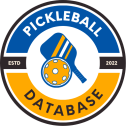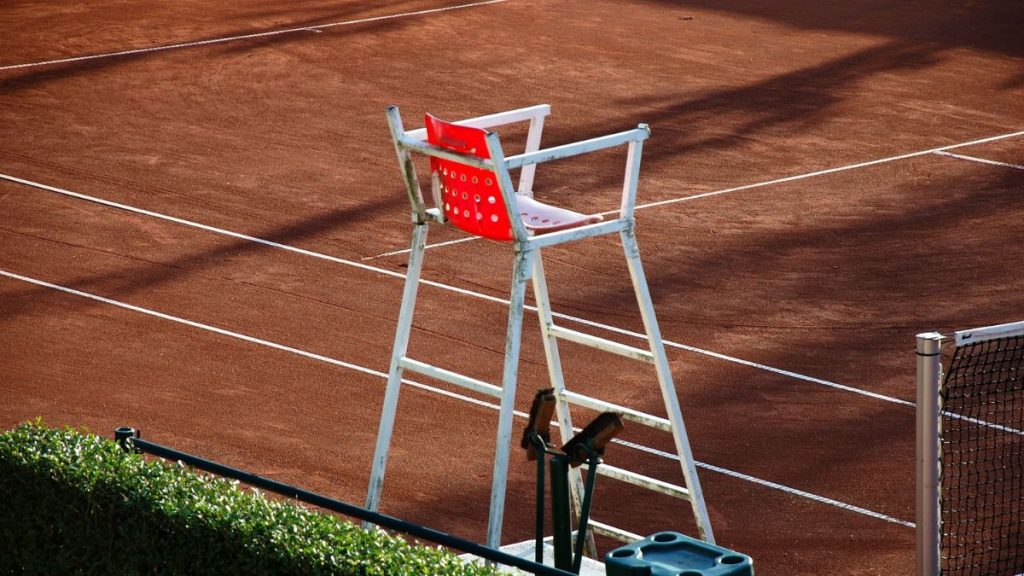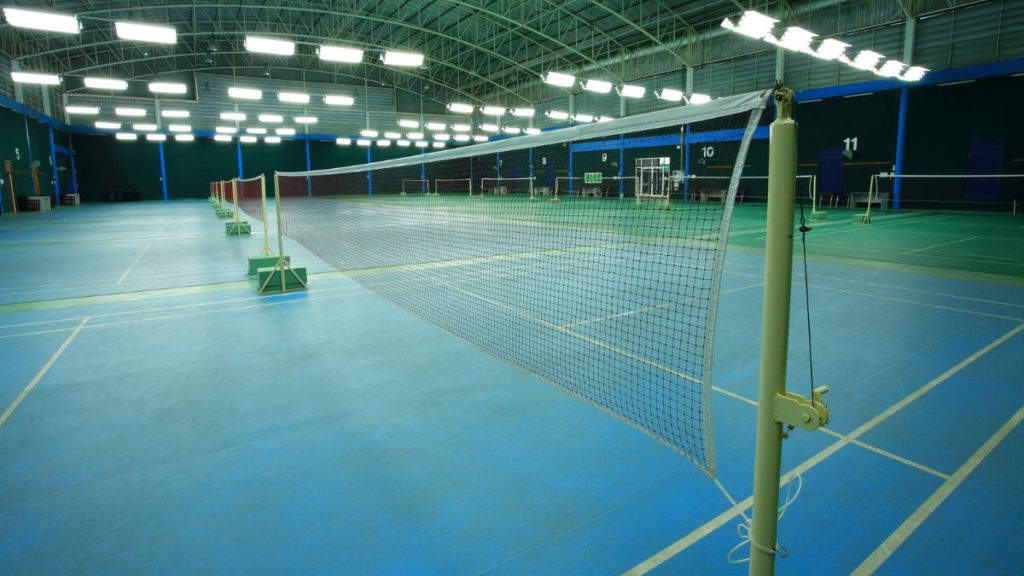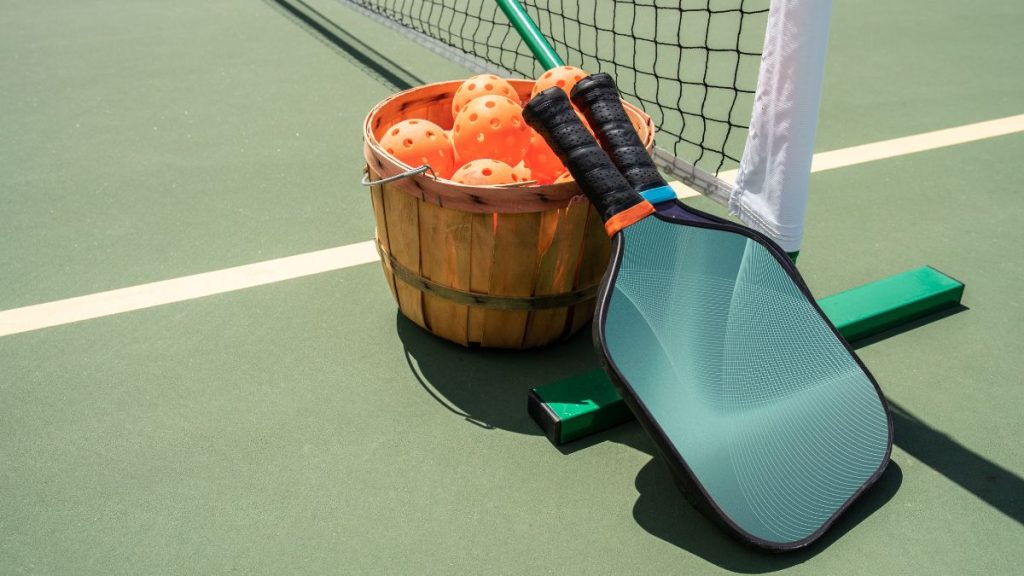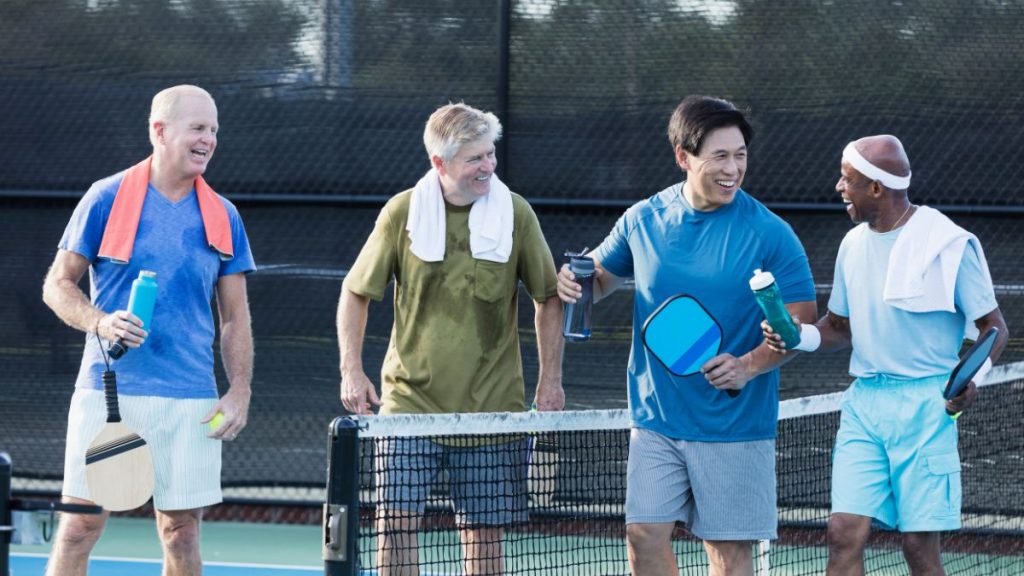A pickleball match can be played with or without a referee. However, the sport’s growing popularity leads to greater demands for certified referees for official pickleball tournaments. Hence, many people wonder— do pickleball referees get paid? Can you really make a living out of being a pickleball referee?
Well, being a pickleball referee is a paid job. Certified referees receive an allowance and complete meals in every tournament. And as mentioned, a growing population of people is into the sport, leading to better-paying opportunities for pickleball referees.
In this article, we will dive deep into everything you need to know about pickleball referees and if they could really earn a living out of being one. We will also discuss each referee level and their skill requirements.
Let’s get started!
Are There Referees In Pickleball?
Yes, a pickleball match can be played with a referee. Mostly, official tournaments hire referees to facilitate the game. If you’re playing with friends, you can play without one or ask someone in your circle to act as a referee for extra fun!
A referee ensures that all rules and regulations are followed throughout the game. A referee’s responsibilities include the following:
- Calling for faults and violations of a player;
- Inspection of players’ playing equipment and the condition of the courts;
- Calling if a score has been made;
- Making sure the score is maintained correctly;
- Allowing and enforcing timeouts by players; and
- Ensuring that proper behavior is observed all the time by the players.
There will also be times when a player will appeal a call made during the game. The referee is in charge of determining whether or not the appeal is valid. If the referee clearly sees the correct call, he or she may reverse the initial call if the referee cannot see clearly, the initial call stands.
Are There Line Judges In Pickleball?
In general, the players are responsible for reporting faults against other players, including line faults. Even if a referee is present, it is the players’ responsibility to call for line faults. Other game violations are the responsibility of the referee.
However, the players are not responsible for reporting line faults if there are linesmen. Any line call made by a player will not be honored by the referee unless it is to his disadvantage.
A player may then appeal any line call made by the referee. A referee may overrule the line person’s decision, replaying the point. If the call is uncertain, the point will be replayed only if all players agree that the ball is out.
How Do You Become A Referee For USAPA?
To become a referee for USAPA, you need to have the complete resources and required training. For the resources, the following are available:
- Reference Materials
- Training Media
- Programs and Policies
- Registered Trainers
- Certified Referees
- Find A Referee
You can find the complete list of resources for each bullet point here. For some of the resources listed, you will need to have a USAPA membership login.
Aside from the resources you need, you also must undergo certain training with a certified pickleball referee. You must also take different tests and assessments to improve your referee level. Each referee level and its training requirements will be discussed in the latter part of this article.
What Are The Benefits of Being A Pickleball Referee?
Being a pickleball referee comes with different benefits and purposes. Here are 5 of the best reasons why choose to become a pickleball referee:
It Helps You to Understand the Pickleball Rules Better.
Yes, playing the pickleball game would give you enough knowledge of the rules. But officiating the games gives you a deeper understanding of them.
Being a pickleball referee is understanding every angle of the rules. Hence, when you get yourself playing the next time, it will be easy for you to get through each one of them.
It Enhances Your Pickleball Skills.
One would argue that training and practice would be the way to improve one’s pickleball skills. Well, this is obviously true, but officiating a game also enhances your skills.
This is because when you get to be a referee, you have a wider view of what’s happening on the court. You can analyze each player’s movements, techniques, and strategies in winning the game. Hence, you open yourself to learning new tactics when officiating a game.
It Can Promote a Better Pickleball Community.
Pickleball is still a growing sport in the country. While a growing number of players play the sport, dedicating time and effort to becoming a referee is a way to make the sport better and more competitive.
You Can Earn From Being a Pickleball Referee.
Being a referee is fun, and you can actually earn from it. There is no recorded standard pay for pickleball referees. But, in some areas, pickleball referees are paid $7 – $10 for each match.
Also, certified referees receive an allowance and paid meals in every tournament they officiate. The growing demand for pickleball tournaments also leads to increasing demand for certified pickleball referees. This will generally result in higher pay for them.
You Get To Have the Best View!
Where would be the best seat to witness some pickleball action than to officiate the game? If you’re not the one playing on the court, you can still enjoy every bit of action by being alongside the players.
What Is Pickleball Referee Level?
In accordance with the USAPA, you can choose among 4 referee levels. These levels have different competencies and skill requirements. The higher the level, the more training, and assessments you must undergo.
Let’s discuss each pickleball referee level starting with the Newcomer level.
Newcomer Level
At this level, it is assumed that you are a novice at officiating a pickleball game. As a result, it is understandable that you are unfamiliar with the role of a referee. The only thing you need is a desire to learn.
The following steps must be taken to advance to the newcomer level:
- Join the USAPA today.
- View a short video about being a referee.
- Download and read through the official pickleball rulebook.
- You must complete a player test.
- Finally, you must register for a referee training session.
You can now referee some matches after the training session, but you must remain under instruction until you fully demonstrate your ability to officiate on your own.
Level 1 Referee
At this level, you are expected to have mastered the fundamentals of tournament officiating. The following requirements must be met:
- You keep learning more about the official pickleball rulebook and officiating handbooks.
- Print sample scoresheets and other materials, such as a clipboard and a timer, as needed.
- Practice officiating matches with your friends at unofficial events.
- You must put your skills to the test as a referee, line judge, and player.
- You should have your skills evaluated by a Certified Referee.
- Finally, on the Tiered Referee form, you must meet the requirements for Level 1.
Level 2 Referee
Officiating matches will require more skills from you at this level. Medal matches in officially sanctioned tournaments are expected to be officiated by now. Level 2 Referees must meet the following requirements:
- Continue to learn more about the rulebook. You are also expected to follow the best practices outlined in the officiating handbook.
- Work with a trainer or a certified referee to officiate as many matches as possible.
- Request that a certified referee evaluates your refereeing abilities.
- Finally, on the Tiered Referee form, you must meet the requirements for Level 2.
Certified Referee
As a pickleball referee, this is the highest level you can achieve. As a certified referee, you can officiate matches in any sanctioned tournament at any level. The following requirements must be met to achieve this level:
- You’ve already had plenty of tournament-game officiating experience.
- Contact a coordinator to plan your certification preparations.
- Successful completion of an advanced training class is required.
- An interview with a certified referee coordinator is also required.
- You should score 90% on the referee and line judge tests.
- Submit an application for certification along with the necessary documentation.
- An evaluation fee is required.
- Schedule a skill evaluation at a sanctioned tournament.
Is It A Good Choice To Become A Pickleball Referee?
Being a pickleball referee is not only about the fun and enjoyment; you can also make a living out of it. Aside from this, there are lots of benefits that you can get by becoming one.
With the sport’s growing popularity, the mentioned skill and training requirements above may even become more complicated and tougher in the future. Hence, this is your perfect chance to give it a go!
Check out your local pickleball sports club now or start reading the official rulebook and begin practicing with your peers.
